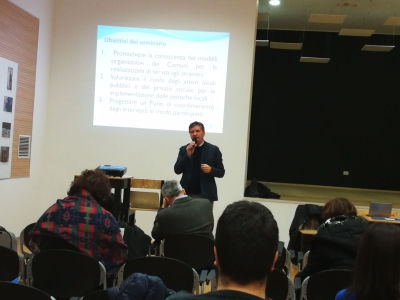(di Giovanni Moro)
Content
-Paradoxes and purposes
-The “Lab” of European Citizenship
-Citizens’ Organizations and European Identity
-Obstacles and threatening elements
-Conclusive Remarks
-References
Paradoxes and purposes
The issue of the building of a European identity seems to be challenged, among others, by two paradoxical matters of fact.
The first is that, while a strong role of citizens in building a common identity is something obvious, in the European debate public institutions are usually supposed to be the main relevant actors. The citizens’ role is underestimated if not ignored at all. This matter gives raise to a paradox: a common identity, and in the final analysis the European demos itself, would be built without the involvement of citizens in the whole process.
This paradox is shown by reality, as in the case of the Constitutional Treaty of the EU and its rejection by French and Dutch referenda. Some elements of that process are of special meaning for this paper:
-This process began with the refusal of national and European authorities to establish, before the beginning of the Convention activity, that its work would have been be submitted to a general European referendum, so that the Convention would have been working with the awareness that its final draft would have been submitted to citizens, as it was suggested by several NGOs on the occasion of the Nice Intergovernmental Conference (December 2000).
-During the Convention’s activity, generally speaking no serious information nor consultation were carried out by the Convention: some crowded and inconclusive meetings were convened and a page of the EU internet site where every individual or NGO could send a message but without receiving any answer was opened. It can be added that the only actual relation of the Convention was with few Brussels-based institutions and organizations, often very far from reality.
-As for its content, the Constitutional Treaty reflects this lack of attention, including some vague norms related to the democratic life of the Union and the dialogue with civil society, far less ambitious than some daily activities of the Union’s institutions. No surprise that, because of the “vicious circle of distrust” (who does not trust is easily distrusted), the Treaty was rejected by citizens, although with several different motivations.
A second paradoxical factor is that, in case of European community, there is an inversion of the relationship between citizenship and identity. While in general identity is presumed to exist as a condition for the establishment of a citizenship, in the case of European Union citizenship was instituted (in the Maastricht Treaty in 1993) before the development of such an identity. This further paradox reflects in a sense the general phenomenon of European institutions as non-standard entities.
Though this situation is due also to some technical constraints, it could be addressed also taking into consideration the activity of citizens’ organizations, operating both at national and at Community levels in connection with European policies (for example, consumer, health, environment, social inclusion, etc.). This paper is aimed at highlighting the actual and possible role of citizens’ organizations in the building of a European identity.
For the sake of clarity, I mean for civic organization (or active citizenship, or civic activism, or citizens’ organization) every organization – whatever its scope, size, juridical status, motivation, membership – which is self-created and selfmanaged by citizens. A civic organization is set up mainly on a voluntary basis. It is active in the area of public policies and aims at protecting citizens’ rights and/or taking care for common goods. It does not seek profit and acts in the general interest. This concept is narrower than the one of civil society, involving only those organizations engaged in public interest activities; and, differently from the one of third sector, it encompasses both advocacy and service organizations. I do not use expressions as “NGO” because of their residual and negative (“not-something”) character (Moro 1998, 2005).
In my approach, moreover, public policies are the proper arena of citizens’ organizations, where they act both in the definition, implementation and evaluation phases. The field of public policy is different and partially autonomous from the one of politics, and participation in policy making has a weak link with political participation through parties and elections.
Read More




